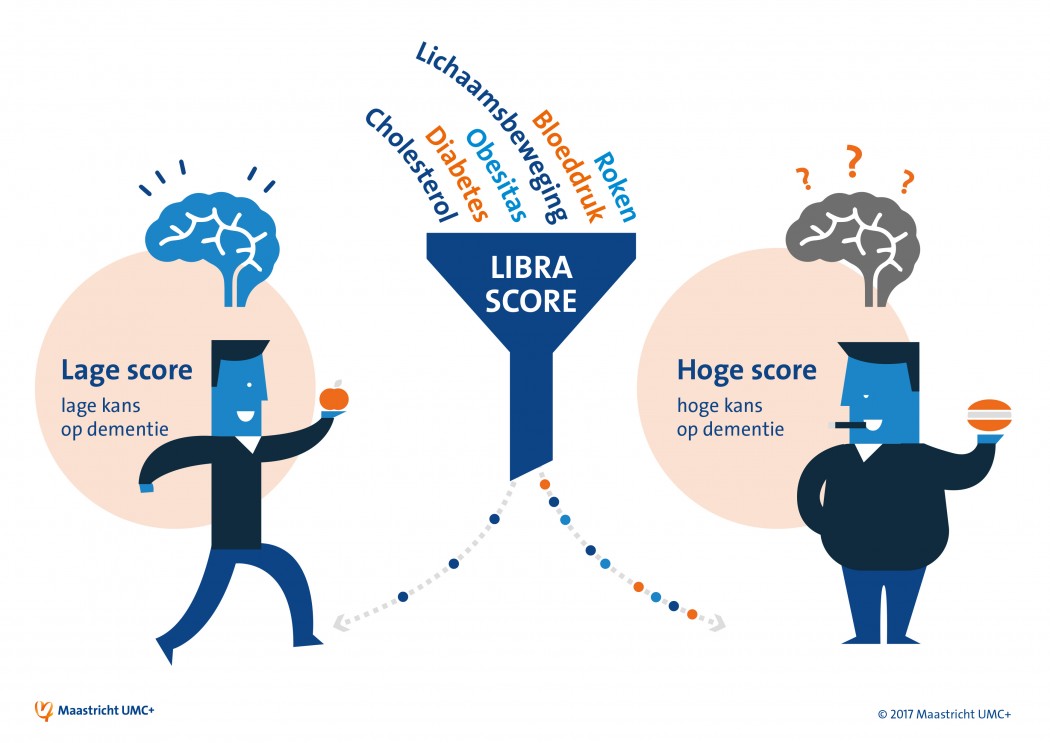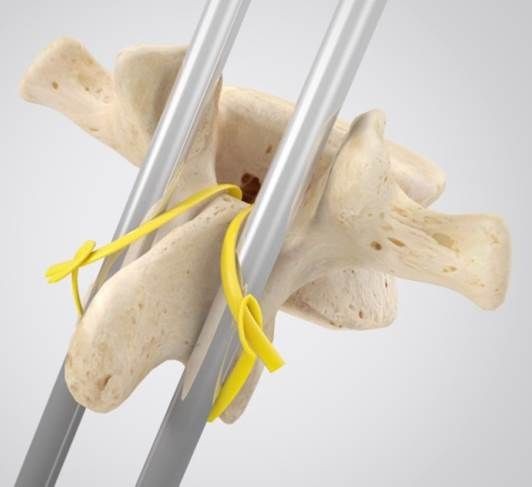Individual risk profile could help prevent dementia
Prevention of dementia potentially stimulated by drawing up personal risk profile. Scientists at Maastricht UMC+ and the Alzheimer Centrum Limburg have developed a score model especially for this purpose based on various lifestyle factors, which could also offer a reference point for intervention. ‘This enables us to reduce the risk of dementia at an early stage’, said principal researcher Stephanie Vos. The successful results, which show that prevention can be successful, are presented in the scientific journal Journal of Alzheimer’s Disease .
Dementia is a rapidly growing health problem worldwide. As yet there is no cure, which makes prevention all the more necessary. Different factors linked primarily with lifestyle affect a person’s risk of developing dementia. These include increased cholesterol levels, being overweight, smoking and high blood pressure. Scientists at Maastricht have developed a model with which an individual risk profile can be drawn up based on twelve of these factors, the Lifestyle for Brain Health (LIBRA) index. This has now been proven effective with the help of a major European population study.

Low score Low risk of dementia; LIBRA SCORE Smoking, Blood pressure, Physical exercise, Obesity, Diabetes, Cholesterol; High score High risk of dementia.
Risk profile
In order to determine the effectiveness of the score model, individual risk profiles were compiled for over 9000 people without dementia and ranging from 55 to 97 years of age. They were studied in the years that followed to see whether or not they developed dementia. The score model turned out to be valid. A higher score on the LIBRA index did indeed lead to more cases of dementia, except in the group of participants over 80 years of age. Using the score model as a basis, this means a prediction can be made as to who is more likely to suffer from dementia with increasing age. Lower scores led to a lower risk of dementia and better brain health.
Practical application
The fact that the score profile is based primarily on lifestyle factors provides plenty of scope to actively work on these. It also provides insight into a person’s specific area(s) of risk. The score profile can help doctors make people more aware of their personal risks and provide them with realistic/feasible advice. ‘If you are shown to have a high score at the age of 55, you can reduce your risk of dementia by giving up smoking, for example, or opting to follow a healthier diet’, said Vos. ‘In other words the score model is both practical and applicable. It can also be used to select people with a high dementia risk for things like clinical trials of new drugs.’
This press release has been issued by the Maastricht University Medical Centre (MUMC+).
More information at: www.mumc.nl/en.
Also read
-
The Maastricht Study specialises in conducting microcirculation measurements
-
Less invasive operation, maximum vertebral growth, and no stray metal particles (MUMC+ news).
-
The influence of prebiotics on overweight people (MUMC+ press release).

